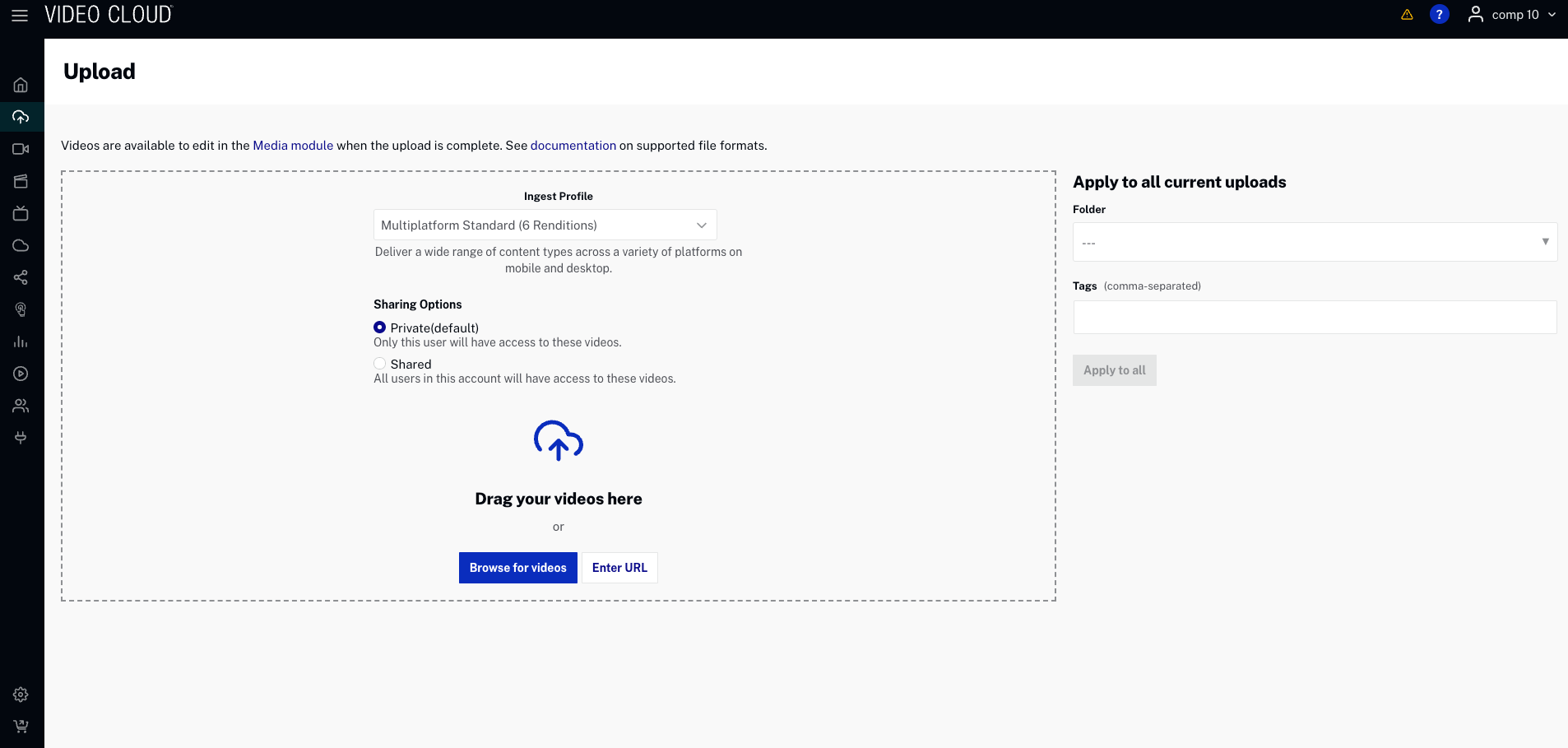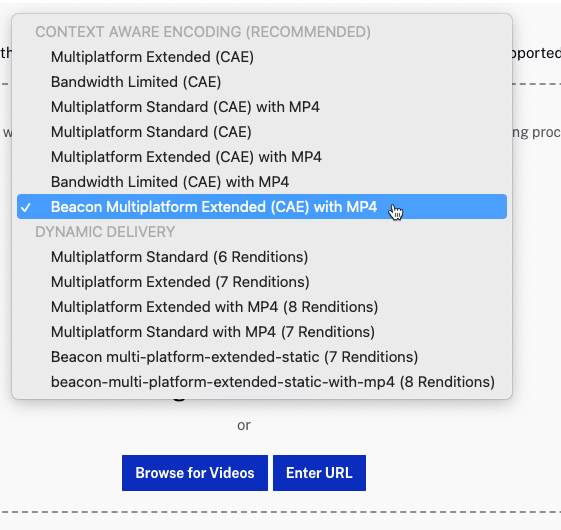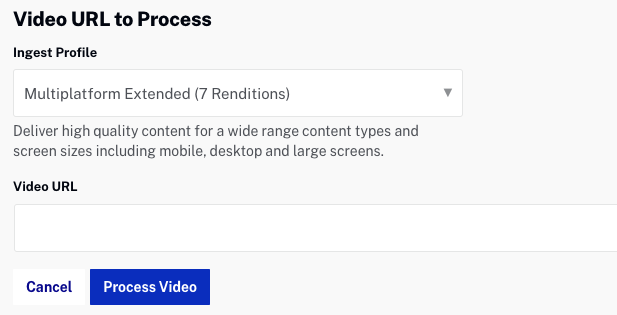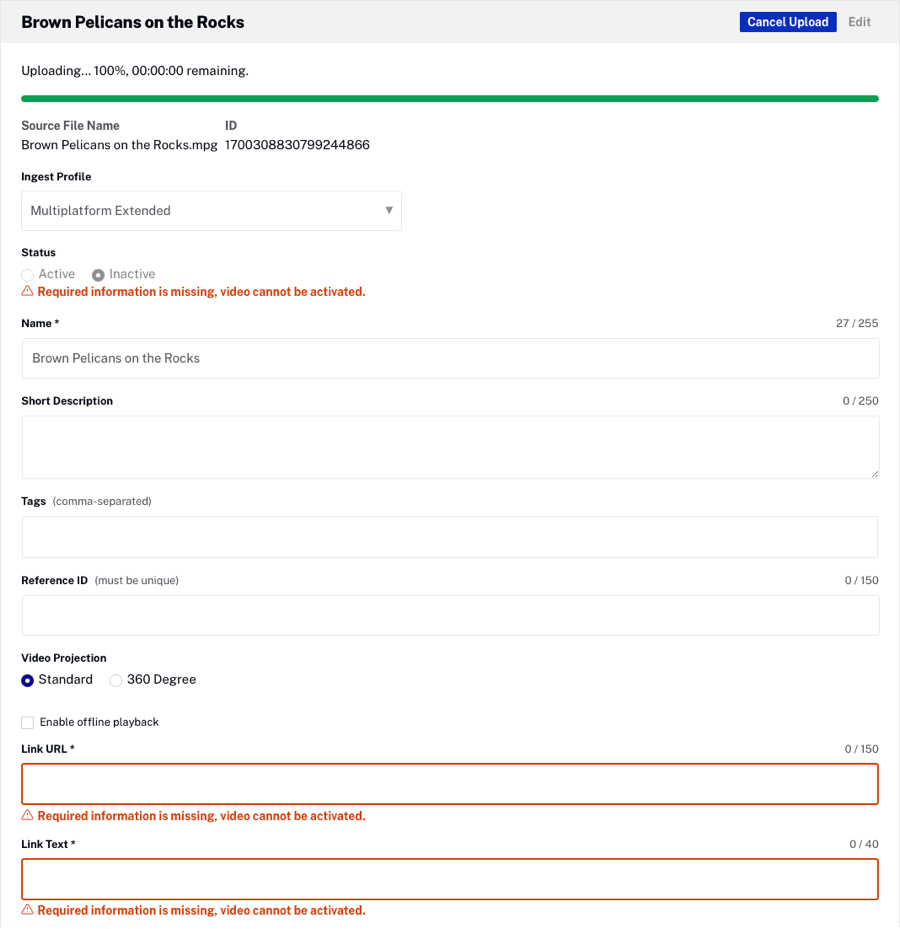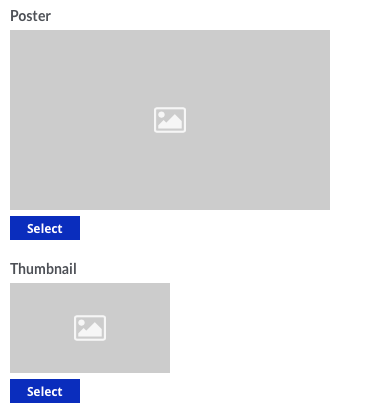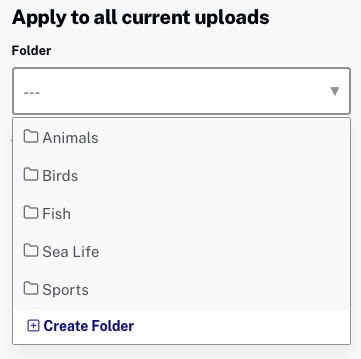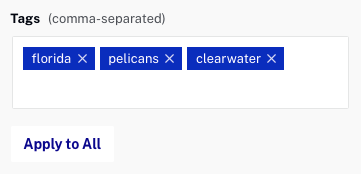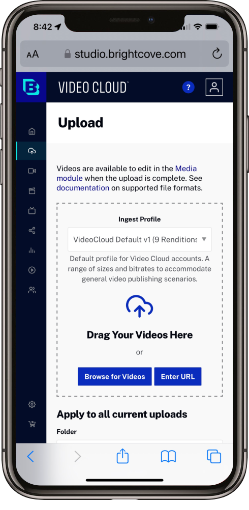The Upload module uses a dynamic ingest process to retrieve and transcode video content. When you select a file to upload, Video Cloud uses a pull-based process to pull the content from a storage location where it then uses the Zencoder transcoding service to transcode the content.
To access the Upload module, open the Upload module.
